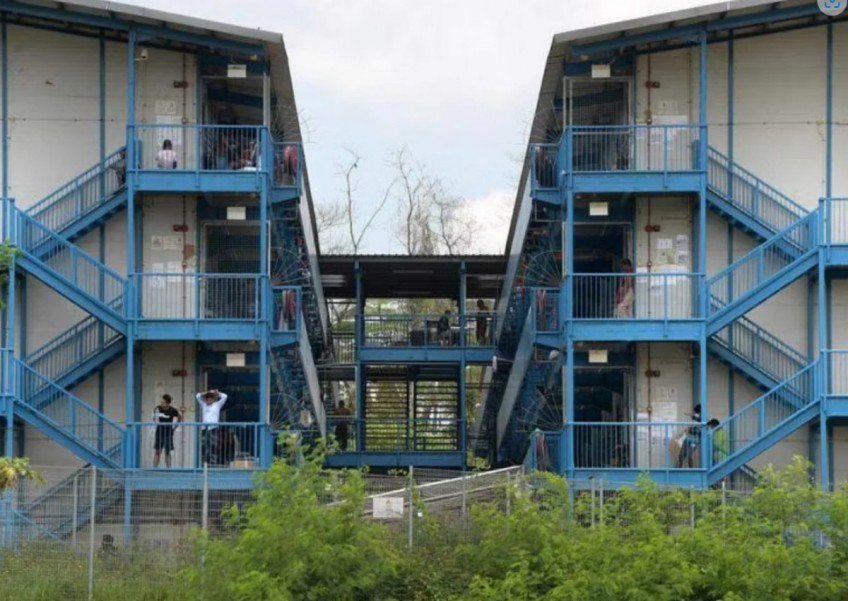Interim housing standards brighten future for foreign workers

Singapore's housing challenge for foreign workers has persisted, raising concerns in recent years. In response, the government has revealed a robust strategy focusing on interim housing standards for approximately 1,000 existing foreign worker dormitories.
This article delves into the challenges faced, governmental initiatives, and the promising future these changes hold for Singapore's foreign workers.
The challenges faced by foreign workers in Singapore's dormitories are deeply rooted on a number of factors that have exacerbated an already strained situation.
One primary factor has been the significant surge in the number of work permit holders, surpassing pre-pandemic levels. This influx, driven by various economic demands and sectors, has put immense pressure on existing accommodation facilities, causing them to operate at full capacity and sometimes even beyond their intended limits.
Moreover, the landscape drastically shifted with the onset of the Covid-19 pandemic in early 2020.
The first wave of cases prompted stringent lockdowns in dormitories, a necessary measure to contain the virus. However, the unintended consequence of these lockdowns was the rapid and widespread transmission of the virus among the foreign workers residing there.
The overcrowded living spaces, where social distancing was virtually impossible, created a breeding ground for infections, bringing the urgent need for enhanced living conditions to the forefront.
Simultaneously, the financial burden on both employers and workers intensified. Dorm rental rates soared by a staggering 40 per cent since the pandemic's onset. This dramatic increase added a considerable strain to the financial resources of employers, making it increasingly challenging for them to provide suitable and safe accommodations for their workers.
The escalating costs not only impacted the businesses but also had direct repercussions on the workers' quality of life, as their living conditions became a matter of grave concern.

In response to these challenges, the our government expanded the Foreign Employee Dormitories Act (FEDA), imposing minimum living standards for all dormitories. This expansion ensured the basic rights and well-being of foreign workers, even amid growing demand, laying the groundwork for a more equitable living environment.
In the pursuit of enhancing the living standards for foreign workers, our government has introduced a robust set of "Interim Standards".
Under these progressive guidelines, 1,000 existing foreign worker dormitories, accommodating approximately 235,000 residents, are slated for substantial enhancements by the year 2030. These standards will eventually lead to the implementation of "New Standards" by 2040.
To facilitate these improvements, a meticulously planned transition scheme has been introduced, spanning from 2027 to 2030. This scheme is designed to systematically upgrade the dormitories, with a strategic focus on larger ones that pose higher public health risks.
Dorm operators are required to apply for a "preferred year" for retrofitting, a process that is set to kick-start in 2025.
This phased approach ensures a smooth and efficient transformation, allowing dormitory operators adequate time to implement the necessary changes without disrupting the residents' daily lives significantly.

Under the earlier regulations, there were no specific limits on the number of residents per room, nor was there a requirement for the spacing between beds. In contrast, the Interim Standards introduce notable improvements. Dormitories will now accommodate up to 12 residents per room, ensuring a more manageable and less congested living arrangement.
Additionally, a minimum spacing of 1 metre between beds is recommended, promoting social distancing and reducing the risk of disease transmission within dormitories.
One of the key aspects of the Interim Standards focuses on the living space allocated to each resident.
Previously, the standard stipulated a minimum of 3.5 sq m per resident on average, with variations across different dormitories. However, the Interim Standards raise this bar, mandating a minimum of 3.6 sq m per resident.
Looking ahead, the New Standards will further enhance these conditions, demanding a minimum of 4.2 sq m per resident.
In terms of sanitation facilities, the previous standards mandated at least one set of toilet, shower, sink, and urinal for every 15 residents, allowing for both common and en-suite toilets.
The Interim Standards, however, introduce a substantial improvement.
Dormitories must now provide at least one set of toilet, shower, and hand wash basin for every six residents, promoting better hygiene and convenience. Notably, en-suite toilets will be the norm under the New Standards, ensuring a higher level of privacy and comfort for residents.
Furthermore, both the Interim and New Standards address the crucial aspect of isolation facilities, especially vital in the context of public health outbreaks.
Dormitories are now required to have at least 10 isolation beds per 1,000 bed spaces, with en-suite toilets mandated for all isolation rooms. The new regulations also outline specific arrangements for isolation beds during outbreaks, emphasising the adaptability and responsiveness of the dormitory facilities.

Recognising the diverse nature of existing dormitories and their infrastructural constraints, the Interim Standards provide flexibility in certain aspects. Communal toilets are allowed for dormitories facing infrastructure limitations, subject to the Ministry of Manpower's (MOM) approval on a case-by-case basis.
This pragmatic approach ensures that while stringent standards are set, there is room for adaptability, acknowledging the practical challenges faced by some dormitory operators.
Acknowledging the financial challenges faced by dorm operators in implementing these upgrades, the MOM is considering providing vital financial assistance.
Dorm operators actively participating in the transition scheme are encouraged to file applications with MOM to be considered for funding. This approach ensures a fair and transparent process, where financial aid is allocated based on genuine need.
The interim housing standards mark a major advancement for our country's foreign workers.
With the government's proactive measures, financial support, and thorough transition plans, a promising future unfolds for foreign workers.
One where every worker can flourish in a supportive community.